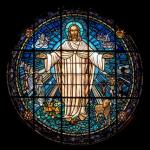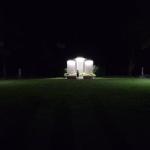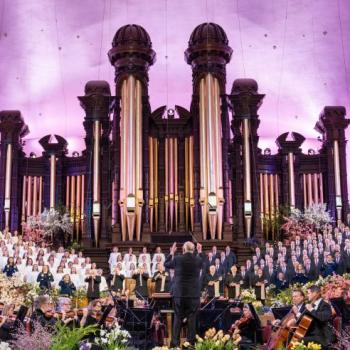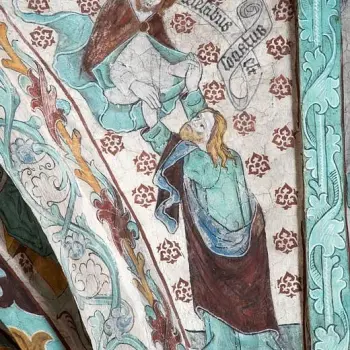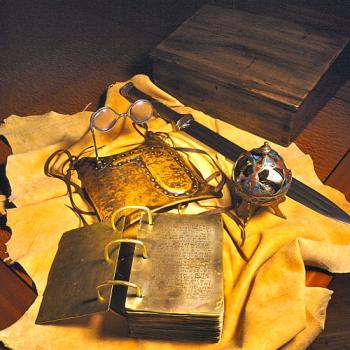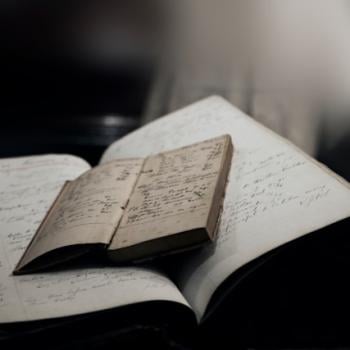My parents, siblings, families, and I made a pilgrimage to Missouri, Illinois, and Iowa to walk in our ancestor’s footsteps and learn more about their lives. Rush Creek in Clay County, Missouri was our first ancestral stop. A deadly cholera outbreak wreaked havoc on Zion’s Camp at Rush Creek and Sidney Gilbert’s adjacent farm. The healthy moved the sick into the Gilbert’s home. When the men died, they were carried back to Rush Creek and buried. Ultimately, cholera claimed 13 lives, including Sidney Gilbert’s.
Joseph Bates Noble, mom’s 2nd great-grandfather, participated in Zion’s Camp and experienced the cholera outbreak at Rush Creek.
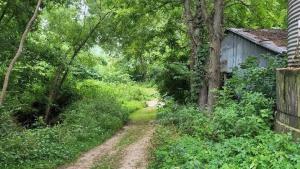
Our cousin Jenni Clark Andersen compiled the following general details about the cholera outbreak at Rush Creek.
Cholera Outbreak at Rush Creek
Tuesday, June 3. Encamped on the bank of the Illinois River.
Prophecy of a Scourge. Joseph Smith: While we were refreshing ourselves and teams about the middle of the day, I got up on a wagon wheel, called the people together, and said that I would deliver a prophecy. I said the Lord had revealed to me that a scourge would come upon the camp in consequence of the fractious and unruly spirits that appeared among them, and they should die like sheep with the rot; still, if they would repent and humble themselves before the Lord, the scourge, in a great measure, might be turned away; but, as the Lord lives, the members of this camp will suffer for giving way to their unruly temper.
Saturday, June 21 Encamped at Cooper’s Farm near current-day Excelsior Springs.
Cholera Breaks out in the Camp. Joseph Smith: Brother Ezra Thayre and Joseph Hancock are sick with the cholera. Thomas Heyes was taken today. Previous to crossing the Mississippi river I had called the camp together and told them that in consequence of the disobedience of some who had been unwilling to listen to my words, but had rebelled, God had decreed that sickness should come upon the camp, and if they did not repent and humble themselves before God they should die like sheep with the rot; that I was sorry, but could not help it. The scourge must come; repentance and humility may mitigate the chastisement but cannot altogether avert it. But there were some who would not give heed to my words.
Tuesday, June 24. Rush Creek.
Prophecy Fulfilled. Joseph Smith: This night the cholera burst forth among us, and about midnight it was manifested in its most virulent form. Our ears were saluted with cries and moanings and lamentations on every hand; even those on guard fell to the earth with their guns in their hands, so sudden and powerful was the attack of this terrible disease. At the commencement, I attempted to lay on hands for their recovery, but I quickly learned by painful experience, that when the great Jehovah decrees destruction upon any people, and makes known His determination, man must not attempt to stay His hand. The moment I attempted to rebuke the disease I was attacked, and had I not desisted in my attempt to save the life of a brother, I would have sacrificed my own. The disease seized upon me like the talons of a hawk, and I said to the brethren: “If my work were done, you would have to put me in the ground without a coffin.”
Of these sorrowful scenes Elder Heber C. Kimball in his journal, gives the following description: “When the cholera first broke out in the camp, Brother John S. Carter was the first who went forth to rebuke it, but [he] himself, was immediately seized by it, and as before stated, was the first who was slain. In about thirty minutes after his death, Seth Hitchcock followed him; and it appeared as though we must sink under the destroyer with them. We were not able to obtain boards to make coffins, [for those who died], but were under the necessity of rolling them up in their blankets and burying them in that manner. So, we placed them on a sled, which was drawn by a horse about half a mile, where we buried them in a little bluff by the side of a small stream that emptied into Rush creek. This we accomplished by dark and returned.
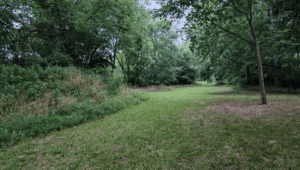
Our hopes were that no more would die, but while we were uniting in a covenant to pray once more with uplifted hands to God, we looked at our beloved brother, Elder Wilcox, and he was gasping his last. At this scene my feelings were beyond expression. Those only who witnessed it, can realize anything of the nature of our sufferings, and 50 felt to weep, and pray to the Lord that He would spare my life that I might behold my dear family again.
I felt to covenant with my brethren, and I felt in my heart never to commit another sin while I lived. We felt to sit and weep over our brethren, and so great was our sorrow that we could have washed them with our tears, to realize that they had traveled one thousand miles through so much fatigue to lay down their lives for our brethren—and who hath greater love than he who is willing to lay down his life for his brethren? This increased our love to them.
About 12 o’clock at night we placed Brother Wilcox on a small sled, which we drew to the place of interment, with one hand hold of the rope, and in the other we bore our firelocks for our defense. While one or two were digging the grave, the rest stood with their arms to defend them. This was our situation, the enemies around us, and the destroyer in our midst.
Soon after we returned another brother was taken away from our little band; thus it continued until five out of ten [attacked] were taken away. It was truly affecting to see the love manifested among the brethren for one another, during the affliction; Brother Joseph, seeing the sufferings of his brethren, stepped forward to rebuke the destroyer, but was immediately seized with the disease himself; and I assisted him a short distance from the place when it was with difficulty he could walk.
All that kept our enemies from us was the fear of the destroyer which the Lord so sent among us. After burying these five brethren, or about this time, I was seized by the hand of the destroyer, as I had gone in the woods to pray. I was instantly struck blind and saw no way whereby I could free myself from the disease, only to exert myself by jumping and thrashing myself about, until my sight returned to me, and my blood began to circulate in my veins. I started and ran some distance, and by this means, through the help of God, I was enabled to extricate myself from the grasp of death. This circumstance took place in a piece of woods just behind Brother Sidney Gilbert’s house.
Two other brethren died at Brother Gilbert’s house about this same time. One of these was a cousin to Brother Joseph Smith, the Prophet.”
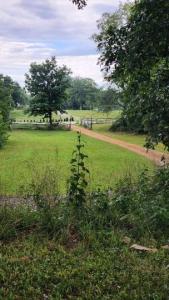
Wednesday, June 25. Rush Creek
Fear of the Cholera. Joseph Smith: While traveling, we called at the house of a Mr. Moss for a drink of water. The woman of the house shouted from the door, that they had “no water for Mormons,” that they were “afraid of the cholera,” etc., at the same time throwing out her arms as if defending herself from the cholera in the form of a personage. We turned and departed, according to the commandment, and before a week had passed, the cholera entered that house, and that woman and three others of the family were dead.
Joseph Smith: I have seen those men who died of the cholera in our camp; and the Lord knows, if I get a mansion as bright as theirs, I ask no more,” said Joseph Smith of those who served in Zion’s Camp. Then he wept and continued: “I wish you to notify all the brethren living in the branches, within a reasonable distance from this place, to meet at a general conference on Saturday next [February 14, 1835]. I shall then and there appoint twelve Special Witnesses, to open the door of the Gospel to foreign nations, and you [Brigham Young] will be one of them. (History of the Church, 2:181.)
Joseph Bates Noble Experienced the Cholera Outbreak at Rush Creek
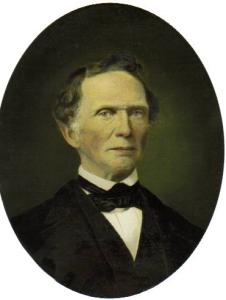
Joseph Bates Noble, at age 24, marched in Zion’s Camp. He was encamped on Rush Creek when cholera broke out. The following story is from his personal accounts.
When the cholera broke out in the camp, Joseph Bates Noble was appointed to take care of four of the sufferers. He remained with them in a small room until they were all dead, after which he accompanied Elders Brigham Young and Heber C. Kimball to Liberty, about two miles from the camp. There he was violently seized with the dreadful malady himself. For 48 hours he suffered the most severe pains with vomiting and purging, while a burning fever in the bowels and distressing cramps, such as are peculiar to cholera, threatened him with momentary death. His voice also failed and his hearing nearly left him. While laying in this painful condition, Elders Brigham and Joseph Young, Heber C. Kimball, Orson Hyde, Peter Whitmer, and some two or three others came in and formed a ring around him and then administered to him.
While they were praying for him, Joseph Bates Noble was blessed with a glorious vision, in which he saw, among other things, the Holy City (New Jerusalem), and while gazing upon its glory and admiring its beauty, he heard a voice saying, “Behold, the blessed abode of the Saints.” The power of God rested upon him in a most marvelous manner; he was almost instantly healed from his sickness, and while the brethren were yet with him he arose and dressed himself. Two days later he started on his return trip to Ohio, in company with Lyman E. And Luke S. Johnson, Sylvester Smith, Zebedee Coltrin, Zerubbabel Snow, and others. They arrived in Kirtland about the 1st of August.
In his journal, Joseph Noble wrote:
Never had I experienced such manifestations of the blessings of God as at this time. I continued to gain strength very fast so that in six or seven days I could do my portion of the walking as we had but one baggage wagon.
In the paper Times and Seasons, there was printed this quote about Joseph’s illness. “It was with great exertions that his life was preserved and that by the application of cold water being drawn out of a well and poured upon him daily and hourly.”
The Company continued their march traveling from twenty-five to thirty miles a day arriving in Kirtland the first day of August. President Joseph Smith had arrived a few days before. Joseph Noble said, “We were all in fairly good health through some of us were weak from fatigue and exposure.”
From his journal, Joseph Bates Noble wrote:
The excitement was so great that we always lay with our armor on, so we were ready in a moment’s warning. One thing I am assured of, the God of our Fathers was our defense. When our enemies gathered thick around us and ready seemingly to destroy us, the heavens gathered blackness and poured forth their thunderings and lightnings and hailstones, so that a little way from our camp the trees were stripped of many leaves and branches to the size of a man’s finger. How plain we could see the hand of the Lord in our preservation.
To all those who made the trek with Zion’s Camp in 1834, President Joseph Smith issued a call for them to assemble on February 14, 1835. This meeting resulted in the organization of the Quorum of the Twelve Apostles. Joseph Bates Noble was a witness to the event of that meeting. On February 28, 1835, Joseph Bates Noble was chosen and ordained a member of the First Council of Seventy in Kirtland.


